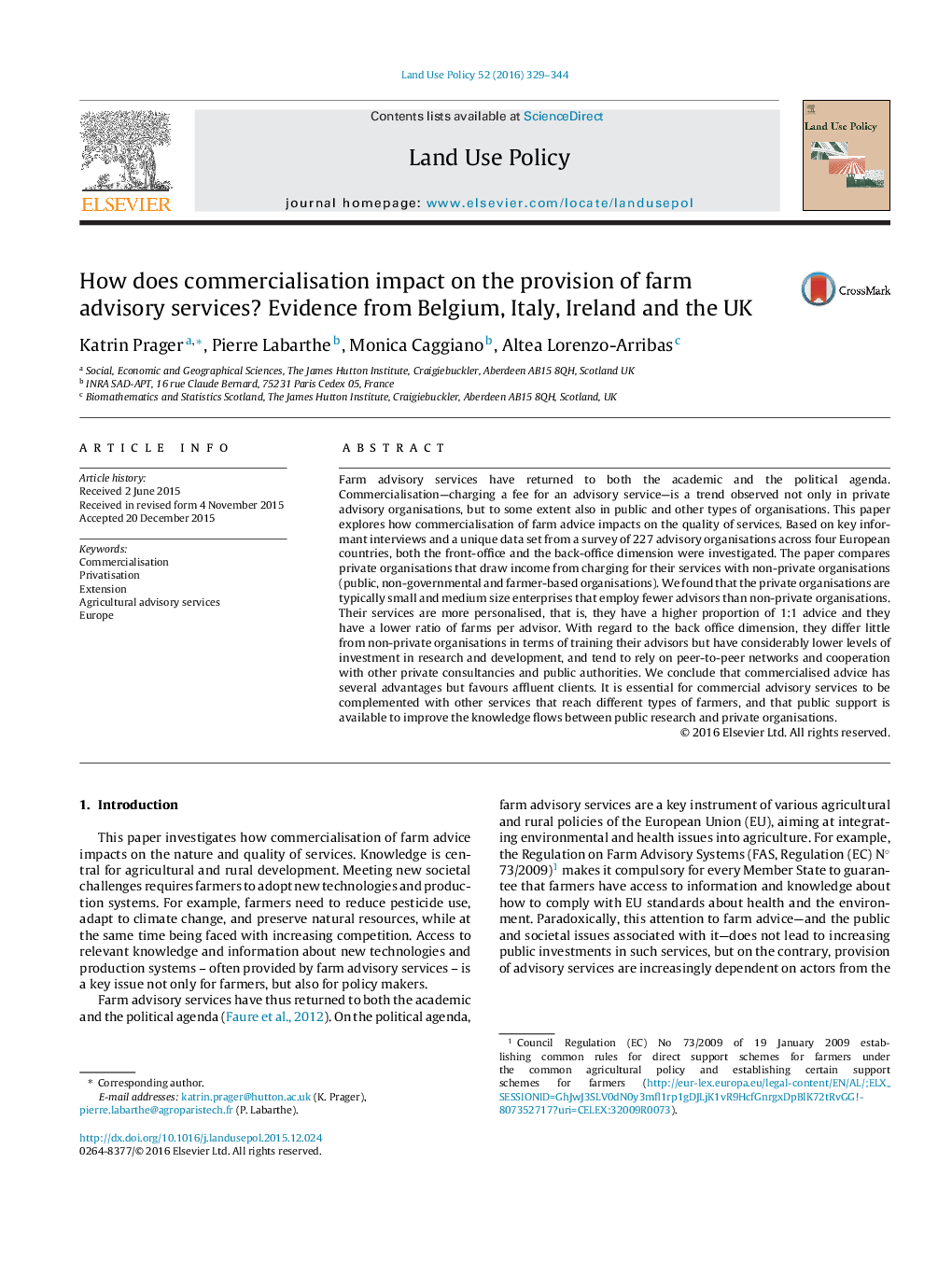| Article ID | Journal | Published Year | Pages | File Type |
|---|---|---|---|---|
| 6547486 | Land Use Policy | 2016 | 16 Pages |
Abstract
Farm advisory services have returned to both the academic and the political agenda. Commercialisation-charging a fee for an advisory service-is a trend observed not only in private advisory organisations, but to some extent also in public and other types of organisations. This paper explores how commercialisation of farm advice impacts on the quality of services. Based on key informant interviews and a unique data set from a survey of 227 advisory organisations across four European countries, both the front-office and the back-office dimension were investigated. The paper compares private organisations that draw income from charging for their services with non-private organisations (public, non-governmental and farmer-based organisations). We found that the private organisations are typically small and medium size enterprises that employ fewer advisors than non-private organisations. Their services are more personalised, that is, they have a higher proportion of 1:1 advice and they have a lower ratio of farms per advisor. With regard to the back office dimension, they differ little from non-private organisations in terms of training their advisors but have considerably lower levels of investment in research and development, and tend to rely on peer-to-peer networks and cooperation with other private consultancies and public authorities. We conclude that commercialised advice has several advantages but favours affluent clients. It is essential for commercial advisory services to be complemented with other services that reach different types of farmers, and that public support is available to improve the knowledge flows between public research and private organisations.
Related Topics
Life Sciences
Agricultural and Biological Sciences
Forestry
Authors
Katrin Prager, Pierre Labarthe, Monica Caggiano, Altea Lorenzo-Arribas,
